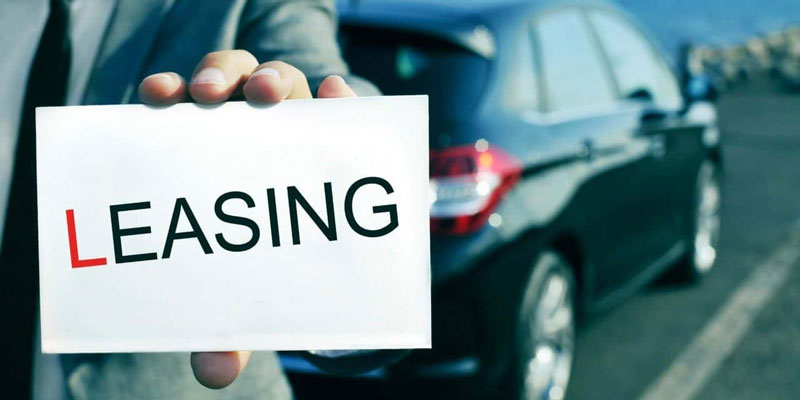Exactly What is a Car Lease? What to Do And What Not to Do
Dec 18, 2023 By Triston Martin
It is common to practice in the automotive industry to "lease" an automobile from the dealership for a certain period and a set number of miles. In most cases, leasing a car means making monthly payments to the dealer in return for having access to it.
There are two ways to cancel a lease: You either give up your automobile to the dealership or buy out your lease if you wish to retain it. A decent credit score is often required to lease a new vehicle.
According to Experian statistics, the average credit score of people leasing a new car in the third quarter of 2020 was 733. A FICO score of 670 or higher is considered "good." Your lease payment history will appear on your credit reports, even if you don't own the automobile you're leasing.

The Process of Leasing an Automobile
Steps to complete if you want to lease a car:
Investigate Your Options
With a lease, you have practically limitless possibilities for what you can do with your vehicle. Determine the sort and brand you're interested in, as well as how the price fits into your budget before you begin your search.
Dealers To Visit
Once you've done that, visit a few car dealerships and take a few rides. As a result, you'll be able to focus your search. You may wish to phone beforehand to find out what's available and whether test drives are currently permitted.
Negotiate Your Lease Conditions
When you visit a dealership, you're not just chatting about the price of the vehicle. During the lease process, just about anything may be discussed and negotiated. In the bargaining process, you have the sole opportunity to receive the incentives you desire in writing. Kelley Blue Book and other price comparison sites might help you get the greatest deal.
Compare The Deals
Use the internet to your advantage and shop around to find the greatest bargain.
Keep The Automobile For The Lease
Don't forget that you'll have to hand back your automobile after the lease. To avoid additional fees, make sure it's in good shape before shipping it.
At the end of the lease, you will have a few alternatives to choose from. Alternatively, you may trade in your automobile, buy the car, or lease a new one.
The Most Expensive Mistakes to Avoid in Car Leasing

Auto buyers may take advantage of today's reduced rates. In this case, leasing may be the preferable option because it does not need a long-term commitment on your part. To put it another way: You pay for the car over time, and when the contract ends, you return the keys to the dealer. To others, this is a fantastic alternative because they don't want to own a car for the foreseeable future and want to upgrade every few years.
Leases have advantages and disadvantages that should be considered before signing the contract. It's possible to wind up paying a lot more than buying the vehicle instead if you're not attentive. It would help if you avoided these pricey mistakes when looking for a vehicle leasing agreement.
Assuming a Full Cost
If you were in the market for a new automobile, you'd probably try to negotiate a lower price with the dealer. Leasing should be treated the same way as buying a home. Although it may not be a long-term investment, you should still do your best to find the greatest bargain.
There is a tendency to focus on the monthly payment while negotiating a lease agreement, but you need to look at the wider picture. If the dealer is charging you the entire list price for the vehicle, you may not be saving as much as you thought. Even a $1,000 discount might make a huge difference in the total cost of the lease.
Investing an Excessive Amount of Money
Some vehicle sellers want a large down payment upfront to assure consumers of the lowest feasible payment. This money is used to pay off a portion of the vehicle's lease in most cases. Assuming the automobile is stolen or wrecked within a few months of the lease, the insurance company would compensate the leasing firm, but you'd be on your own.
You'd be left without a car and the money you put down on it. A greater monthly payment may be offset because you won't have to worry about running out of money if something happens to the vehicle.
Mileage Overestimation
One of the lease agreement terms is the maximum number of miles you may drive the vehicle each month. Annual mileage is typically restricted to between 12,000 and 15,000 kilometers. As a result, you'll be charged for every mile you go above the limit.
Leasing companies may charge up to 25 cents per mile, which may rapidly mount if you're always on the road. Before signing a leasing agreement, a detailed review of your driving habits is necessary to ensure the limitations are reasonable.

Strategies for Early Retirement: A Closer Look at Age 62

The 10 U.S. cities with the most population in 2022

Listing the Best Real Estate Crowdfunding Sites in 2022

What are SPACs? (Special Purpose Acquisition Company)

See: How Do Dividends Affect the Balance Sheet?

How Excess of Loss Reinsurance Operates in the Insurance Industry?

What is Risk Reversal? A Beginner's Guide to Options and Hedging

Navigating the World of Alternative Investments: A Comprehensive Guide

Bilateral Trade Agreements and Their Importance in the World Economy

